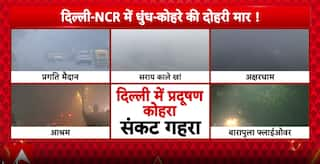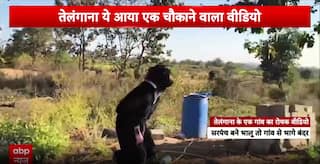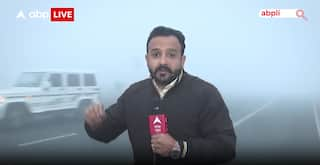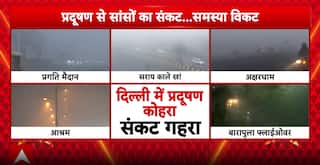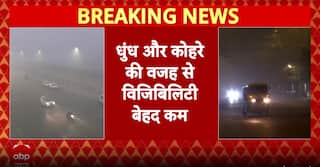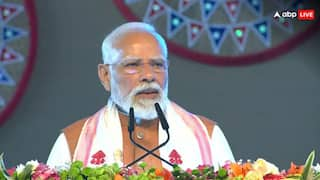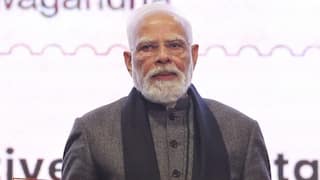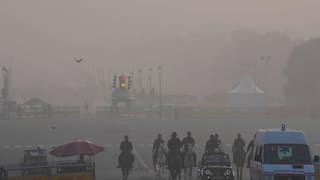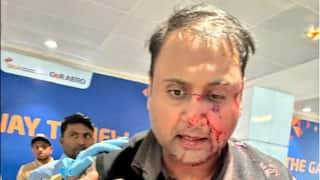Explorer
West Bengal: Army deployed in Darjeeling as Gorkhaland movement turns violent

The Bengal government sought the assistance of the army after Gorkha Janmukti Morcha supporters pelted the police with stones and burnt several vehicles in Darjeeling.
DARJEELING: The army was called out in Darjeeling on Thursday after waves of young stone-throwers ran circles round police and torched security vehicles soon after Mamata Banerjee had ended the first cabinet meeting in the hills in 45 years. Suspicion that the Bengali language would be imposed on the hills' schoolchildren - despite an assurance from the chief minister that it would not - sparked the violence at a time more than 10,000 tourists are holidaying in Darjeeling. 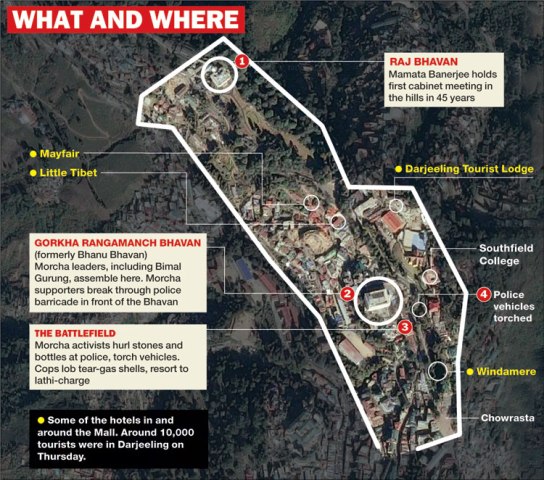 Sources close to Mamata said the chief minister would stay put in Darjeeling till she was sure the tourists were safe. "She has instructed the administration to ensure the tourists are not inconvenienced," a source said. A pitched battle was fought barely 200 metres from the Raj Bhavan, where Mamata and over a dozen state ministers had just ended their meeting, held here as a symbol of the chief minister's development agenda for the hills. The last time the cabinet had met in Darjeeling was in 1972, when Siddhartha Shankar Ray was chief minister. Normality returned in the evening after a meeting between the police and leaders of the Gorkha Janmukti Morcha, which had spearheaded the protests, but thousands of tourists were trying to leave. Finding transport to the plains was proving hard, though. Things are likely to get more difficult on Friday as the Morcha youth wing has called a 12-hour strike. "With the army coming in, the situation seems under control, but I can tell you that it's fluid," a police source said. Mamata had arrived at the Raj Bhavan around 1pm. The cabinet met at 2pm for half an hour, and a media briefing followed. The violence broke out within 10 minutes of the briefing. Morcha supporters went about torching police vehicles, police posts and public buses. Young stone-throwers arrived in waves, then vanished down the alleyways only to reappear again. The tumult raged from 3pm till nearly 5.30pm. "Such scenes haven't been seen in the hills for a long time," an employee of a Mall hotel said. A government official confirmed that all local channels had been asked to go off the air indefinitely from Thursday evening. The Morcha had upped its ante against the state government over the past few days with rallies and street-corner meetings. Mamata clarified in Mirik on Tuesday that Bengali would not be mandatory at schools in the hills and certain parts in Terai and the Dooars but Morcha chief Bimal Gurung demanded a formal cabinet announcement on Thursday. As the cabinet met, Gurung was barely 300 metres away at the protest hub, the Gorkha Rangamanch Bhavan, from where the police barricaded the road to the Raj Bhavan. The chaos started when some people burnt an effigy of Mamata. "Suddenly, stones began raining. Soon, the violence spread to other parts of the city," a police officer said. Similar scenes had been witnessed in 2013 over an alleged incident involving the police and a schoolchild. Since then the hills had been relatively calm. Gurung was expected to announce a fresh programme of agitation on Thursday but refused to speak to the media and said he needed two or three days to think. Morcha assistant secretary Jyoti Kumar Rai accused Trinamul supporters of instigating the violence by starting the stone-throwing. Trinamul hills president Rajen Mukha dismissed the charge as "laughable" and alleged that Morcha supporters were carrying catapults, suggesting "pre-planned violence". At least nine public vehicles, including six police vehicles and a state bus, were torched, as was a traffic outpost. Some 52 cops, including district police chief Amit P. Javalgi, suffered injuries. Police sources said at least 25 Morcha supporters too were injured, and that at least one person had been arrested.
Sources close to Mamata said the chief minister would stay put in Darjeeling till she was sure the tourists were safe. "She has instructed the administration to ensure the tourists are not inconvenienced," a source said. A pitched battle was fought barely 200 metres from the Raj Bhavan, where Mamata and over a dozen state ministers had just ended their meeting, held here as a symbol of the chief minister's development agenda for the hills. The last time the cabinet had met in Darjeeling was in 1972, when Siddhartha Shankar Ray was chief minister. Normality returned in the evening after a meeting between the police and leaders of the Gorkha Janmukti Morcha, which had spearheaded the protests, but thousands of tourists were trying to leave. Finding transport to the plains was proving hard, though. Things are likely to get more difficult on Friday as the Morcha youth wing has called a 12-hour strike. "With the army coming in, the situation seems under control, but I can tell you that it's fluid," a police source said. Mamata had arrived at the Raj Bhavan around 1pm. The cabinet met at 2pm for half an hour, and a media briefing followed. The violence broke out within 10 minutes of the briefing. Morcha supporters went about torching police vehicles, police posts and public buses. Young stone-throwers arrived in waves, then vanished down the alleyways only to reappear again. The tumult raged from 3pm till nearly 5.30pm. "Such scenes haven't been seen in the hills for a long time," an employee of a Mall hotel said. A government official confirmed that all local channels had been asked to go off the air indefinitely from Thursday evening. The Morcha had upped its ante against the state government over the past few days with rallies and street-corner meetings. Mamata clarified in Mirik on Tuesday that Bengali would not be mandatory at schools in the hills and certain parts in Terai and the Dooars but Morcha chief Bimal Gurung demanded a formal cabinet announcement on Thursday. As the cabinet met, Gurung was barely 300 metres away at the protest hub, the Gorkha Rangamanch Bhavan, from where the police barricaded the road to the Raj Bhavan. The chaos started when some people burnt an effigy of Mamata. "Suddenly, stones began raining. Soon, the violence spread to other parts of the city," a police officer said. Similar scenes had been witnessed in 2013 over an alleged incident involving the police and a schoolchild. Since then the hills had been relatively calm. Gurung was expected to announce a fresh programme of agitation on Thursday but refused to speak to the media and said he needed two or three days to think. Morcha assistant secretary Jyoti Kumar Rai accused Trinamul supporters of instigating the violence by starting the stone-throwing. Trinamul hills president Rajen Mukha dismissed the charge as "laughable" and alleged that Morcha supporters were carrying catapults, suggesting "pre-planned violence". At least nine public vehicles, including six police vehicles and a state bus, were torched, as was a traffic outpost. Some 52 cops, including district police chief Amit P. Javalgi, suffered injuries. Police sources said at least 25 Morcha supporters too were injured, and that at least one person had been arrested.
 Sources close to Mamata said the chief minister would stay put in Darjeeling till she was sure the tourists were safe. "She has instructed the administration to ensure the tourists are not inconvenienced," a source said. A pitched battle was fought barely 200 metres from the Raj Bhavan, where Mamata and over a dozen state ministers had just ended their meeting, held here as a symbol of the chief minister's development agenda for the hills. The last time the cabinet had met in Darjeeling was in 1972, when Siddhartha Shankar Ray was chief minister. Normality returned in the evening after a meeting between the police and leaders of the Gorkha Janmukti Morcha, which had spearheaded the protests, but thousands of tourists were trying to leave. Finding transport to the plains was proving hard, though. Things are likely to get more difficult on Friday as the Morcha youth wing has called a 12-hour strike. "With the army coming in, the situation seems under control, but I can tell you that it's fluid," a police source said. Mamata had arrived at the Raj Bhavan around 1pm. The cabinet met at 2pm for half an hour, and a media briefing followed. The violence broke out within 10 minutes of the briefing. Morcha supporters went about torching police vehicles, police posts and public buses. Young stone-throwers arrived in waves, then vanished down the alleyways only to reappear again. The tumult raged from 3pm till nearly 5.30pm. "Such scenes haven't been seen in the hills for a long time," an employee of a Mall hotel said. A government official confirmed that all local channels had been asked to go off the air indefinitely from Thursday evening. The Morcha had upped its ante against the state government over the past few days with rallies and street-corner meetings. Mamata clarified in Mirik on Tuesday that Bengali would not be mandatory at schools in the hills and certain parts in Terai and the Dooars but Morcha chief Bimal Gurung demanded a formal cabinet announcement on Thursday. As the cabinet met, Gurung was barely 300 metres away at the protest hub, the Gorkha Rangamanch Bhavan, from where the police barricaded the road to the Raj Bhavan. The chaos started when some people burnt an effigy of Mamata. "Suddenly, stones began raining. Soon, the violence spread to other parts of the city," a police officer said. Similar scenes had been witnessed in 2013 over an alleged incident involving the police and a schoolchild. Since then the hills had been relatively calm. Gurung was expected to announce a fresh programme of agitation on Thursday but refused to speak to the media and said he needed two or three days to think. Morcha assistant secretary Jyoti Kumar Rai accused Trinamul supporters of instigating the violence by starting the stone-throwing. Trinamul hills president Rajen Mukha dismissed the charge as "laughable" and alleged that Morcha supporters were carrying catapults, suggesting "pre-planned violence". At least nine public vehicles, including six police vehicles and a state bus, were torched, as was a traffic outpost. Some 52 cops, including district police chief Amit P. Javalgi, suffered injuries. Police sources said at least 25 Morcha supporters too were injured, and that at least one person had been arrested.
Sources close to Mamata said the chief minister would stay put in Darjeeling till she was sure the tourists were safe. "She has instructed the administration to ensure the tourists are not inconvenienced," a source said. A pitched battle was fought barely 200 metres from the Raj Bhavan, where Mamata and over a dozen state ministers had just ended their meeting, held here as a symbol of the chief minister's development agenda for the hills. The last time the cabinet had met in Darjeeling was in 1972, when Siddhartha Shankar Ray was chief minister. Normality returned in the evening after a meeting between the police and leaders of the Gorkha Janmukti Morcha, which had spearheaded the protests, but thousands of tourists were trying to leave. Finding transport to the plains was proving hard, though. Things are likely to get more difficult on Friday as the Morcha youth wing has called a 12-hour strike. "With the army coming in, the situation seems under control, but I can tell you that it's fluid," a police source said. Mamata had arrived at the Raj Bhavan around 1pm. The cabinet met at 2pm for half an hour, and a media briefing followed. The violence broke out within 10 minutes of the briefing. Morcha supporters went about torching police vehicles, police posts and public buses. Young stone-throwers arrived in waves, then vanished down the alleyways only to reappear again. The tumult raged from 3pm till nearly 5.30pm. "Such scenes haven't been seen in the hills for a long time," an employee of a Mall hotel said. A government official confirmed that all local channels had been asked to go off the air indefinitely from Thursday evening. The Morcha had upped its ante against the state government over the past few days with rallies and street-corner meetings. Mamata clarified in Mirik on Tuesday that Bengali would not be mandatory at schools in the hills and certain parts in Terai and the Dooars but Morcha chief Bimal Gurung demanded a formal cabinet announcement on Thursday. As the cabinet met, Gurung was barely 300 metres away at the protest hub, the Gorkha Rangamanch Bhavan, from where the police barricaded the road to the Raj Bhavan. The chaos started when some people burnt an effigy of Mamata. "Suddenly, stones began raining. Soon, the violence spread to other parts of the city," a police officer said. Similar scenes had been witnessed in 2013 over an alleged incident involving the police and a schoolchild. Since then the hills had been relatively calm. Gurung was expected to announce a fresh programme of agitation on Thursday but refused to speak to the media and said he needed two or three days to think. Morcha assistant secretary Jyoti Kumar Rai accused Trinamul supporters of instigating the violence by starting the stone-throwing. Trinamul hills president Rajen Mukha dismissed the charge as "laughable" and alleged that Morcha supporters were carrying catapults, suggesting "pre-planned violence". At least nine public vehicles, including six police vehicles and a state bus, were torched, as was a traffic outpost. Some 52 cops, including district police chief Amit P. Javalgi, suffered injuries. Police sources said at least 25 Morcha supporters too were injured, and that at least one person had been arrested. Follow Breaking News on ABP Live for more latest stories and trending topics. Watch breaking news and top headlines online on ABP News LIVE TV
Read more

Sayantan Ghosh
Opinion










